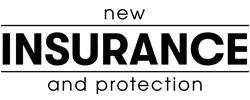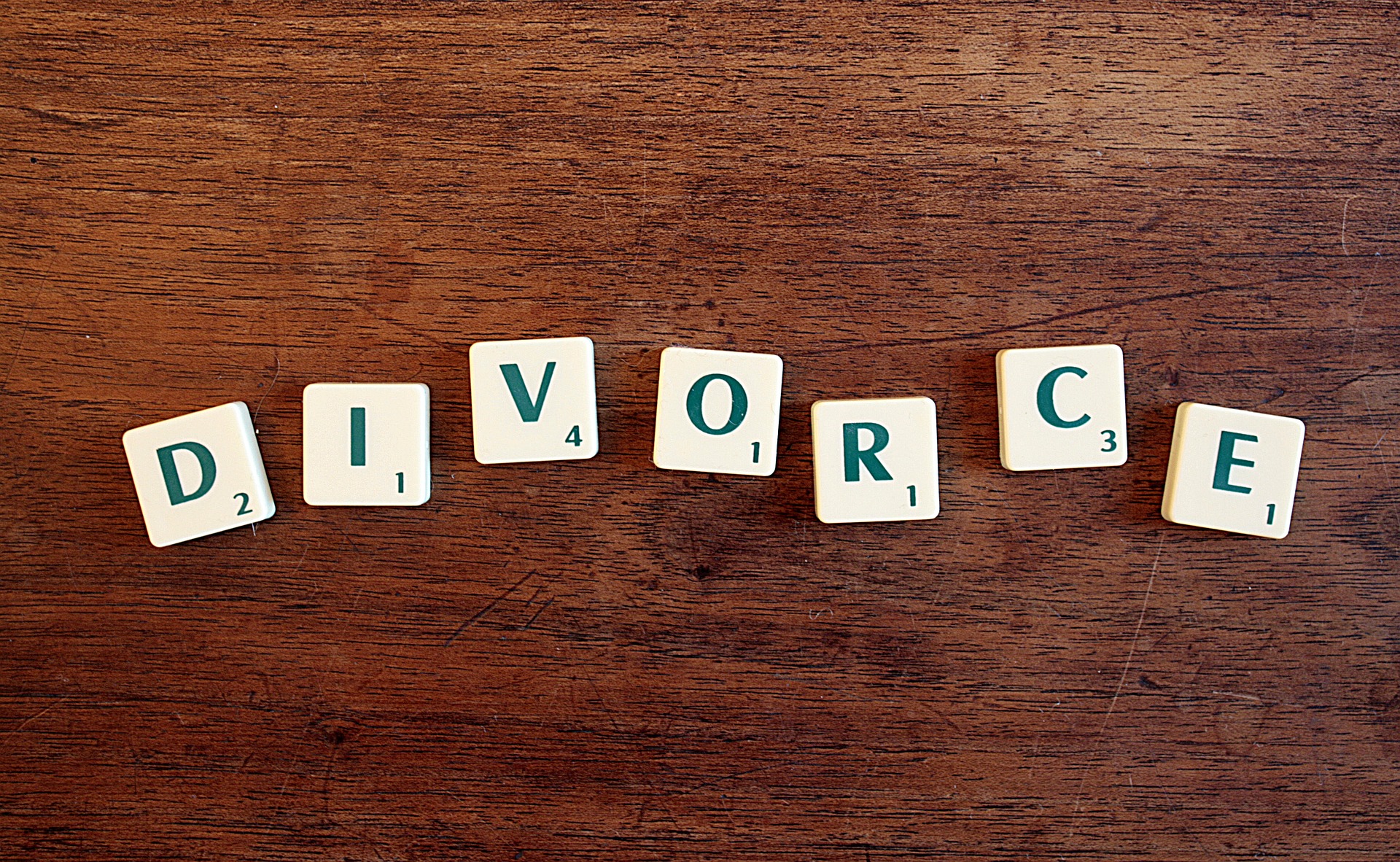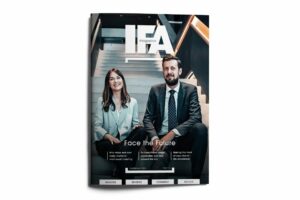A powerful Q&A with Rose St. Louis, Protection Director at Lloyds Banking Group, highlighting why boosting DEI initiatives within financial services is good for all.
Over the last three decades, the financial sector has undergone somewhat of an evolution regarding diversity and inclusion.
Whilst the scales are far from balanced, the influx of those of different races, genders, beliefs and religions has created a melting pot of flavours from what was once a tasteless broth.
Last years ‘Women in Finance’ report highlighted that the average female representation in senior management had increased to 35% whilst, for the first time since the Charter’s creation, the top quarter of firms (52) achieved at least 40% female representation in senior management.
However, hitting DEI targets and ensuring representation at all levels of management is merely the start when it comes to creating a truly accepting financial sector.
The ultimate goal must be to ensure that everyone feels confident and comfortable in the workplace as creating an inclusive environment alongside a diverse team is what will create real change in the industry.
In this exclusive interview with IFA Magazine’s Brandon Russell, Rose St Louis, Protection Director at Lloyds Banking Group, highlights why she strongly believes that this is the case. Rose also highlights the positive changes she has seen during her time working in financial services as well as the new challenges that are yet to be overcome.
Rose has been working in the industry for just over two decades and has taken an interesting route that has led her to her current position. That career path involves periods where Rose has worked as an IFA, and a risk and compliance officer. She has done numerous live TV appearances discussing DEI, the need for financial protection as well as many other important issues.
Reflecting on her own career development Rose said: “I’ve been the Protection Director at Lloyds Banking Group for three years and am responsible for the end-to-end protection proposition. It’s the business that faces into our own banking channel and relates to the Scottish Widows protection products branded Lloyds, Halifax or Bank of Scotland which are sold by mortgage and protection advisers or digitally through the app or internet banking. There’s also our intermediary proposition through the Scottish Widows brand that goes out to our IFAs.”
“My career certainly hasn’t gone in a straight line. I wasn’t one of those people that left University and knew exactly what I wanted to do. I did start working in insurance, in telesales for Endsleigh Insurance for about six months. I then became a financial adviser, as I say, selling real products to real people.”
Following her time as an IFA, Rose went on to hold numerous roles for various companies within the financial sector including as a compliance manager for Coutts, account manager at CoFunds and SEI, Head of Strategic Partnerships at Zurich Insurance and director at KPMG UK.
Whilst the roles Rose worked within have varied, one constant throughout her career has been her strong stance on the need for a more inclusive industry. Having spoken on live TV about issues such as the ‘Gender Pension Gap’ as well as at networking events with the Black Organisation for
Leadership & Development network (BOLD), Rose has continued to push for change in what has been a notoriously stubborn sector.
There has, without doubt, been significant change over the course of Rose ‘s established career with more and more women, races, religions and cultures being seen across financial services.
However, Rose believes that diversity is the first, and easiest, step when it comes to cultivating a healthy workplace. The most important aspect is to develop inclusivity as allowing colleagues and customers to feel welcome is the factor that will decide whether or not they stay.
She said: “Diversity really tugs on quotas and can feel a bit close to affirmative action, feeling a bit forced but arguably we have got ourselves into this place. Inclusion is something that happens within an environment that is welcoming and belonging. It is easier to hit a number, for instance you need a black person, a gay person, a white person, you can get those people. But if you don’t make your environment inclusive, they don’t stay. This is the same for customer impressions as well. If you market in a way that implies diversity but there’s nothing else about your proposition that speaks to that, then they won’t hold your product. Inclusion is the stickiness. That’s the hard work and I think it’s the most important thing.
“When it comes to looking at the industry, you’ll see lots of ‘nods’ towards diversity and inclusion. Some of these are more valuable than others. For example, we have many gender awards, whether it be ‘Women in Financial Services’, ‘Women in Protection’, Women in Pensions’ etc. There are countless different examples and I personally love these gender awards that shine a light on emerging female talent.
“I am also a massive fan of the ‘mentor’ or ‘advocacy’ or ‘diversity champion’ type of awards because they give men and women opportunities to lean into those conversations. There is always the inevitable backlash asking when are there going to be men’s awards. However, I think that there’s something about raising the profile of female talent, but also shining a light on the differences in people as men and women, the different challenges that they have that helps cultivate a genuinely inclusive environment.”
Rose is a believer that diversity and inclusion add to the overall strength of a business, but she also believes it builds upon her own ability as a colleague and a leader. It really is a win-win situation. The level of knowledge, understanding and appreciation that can be attained from a diverse workforce is far greater as the cultural differences, backgrounds and upbringings allows for a whole multitude of learning opportunities.
Rose said: “It almost definitely makes you a better colleague and a better leader if you have diversity within your team or at least an appreciation for it. An example within my own team is a colleague who had recently had a baby and looked incredibly tired, as all new parents do. After speaking to him I discovered that he was also fasting at the same time as dealing with his new-born baby. He happily talked to me about the rules of his fast and the way it changes dates every year and how the summer is the most difficult because the fast lasts from dawn until dusk.
“Just by having that conversation with someone with different beliefs and traditions, I instantly became a more well-rounded leader and colleague. If that situation arises for me again in the future, I’ll know that tiredness is not down to laziness or lack of concentration but can, in fact, be down to cultural differences. I can therefore create a workplace where they can thrive by making alterations during these periods.”
As we’ve already stressed, Rose has continued to raise awareness and speak on important issues surrounding diversity and inclusion throughout her career. However, she believes that the most important conversations are often ones that she isn’t able to have herself.
Whilst raising such topics at groups such as LBG’s Rainbow (LGBTQ+) or BOLD (Black Organisation for Leadership & Development) is crucial, those conversations happening within circles where it’s outside of the norm is how real change can be made.
Rose highlighted how people of different races, sexual-orientation and religions discussing each other’s barriers and challenges within their groups is the most effective way of inspiring inclusivity.
According to Rose, “That’s where inclusivity can be infectious. Because women talking about women’s problems or black people talking about black people’s problems or LGBTQ+ people talking about the problems they face are often shouted into an echo chamber and ultimately, nothing changes. It’s when someone has power, authority and influence and they take that message somewhere different, put it in a space where that conversation’s not been had and then challenge how people think. That’s when you have change.”
Having conversations around DEI is vital but ultimately pointless if no action is taken or the conversations do not reach the people that need to hear them.
At Lloyds Banking Group, Rose and her team have taken real steps to ensure that firstly, the conversations can be heard by people of all backgrounds from all generations and that those same people have role models from which they can draw both support and inspiration.
Rose said: “We have historically, like most other providers, done things by proposition. However, now we’re trying to be a bit more holistic in our approach. For example, at the Black Girl Finance event, I talked about pensions, I talked about savings, I talked about debt, I talked about insurance, wills, trusts etc. But we also talked about relationships, we talked about love, we talked about divorce. We discussed everything because there’s a common thread around finance that goes through all these topics that impact our lives. To be in those spaces, highlighting all these topics, I think that’s what we’re trying to do differently.
“We are also exposing ourselves through channels, not just like LinkedIn, but also TikTok, Instagram and Facebook so that we can get to different audiences. We are then leveraging the reach and the capability of influencers for those cohorts in those spaces so we can get our messages through. One of the things that was really interesting to me, for the last few years in the ‘Women and Retirement Report’, is it has a slice of intersectionality through it. It talks about women. It talks about women of colour from different ethnic backgrounds. It talks about single women. It talks about married women. It just covers so many different areas.
“Also, as Lloyds Banking Group and Scottish Widows, we’re really thoughtful around how we recruit and what our role models within the company look like. Across Lloyds Banking Group, and across the whole of our group executive committee, we all take a role being an executive sponsor and are very active, whether it’s disability, whether it’s LGBTQ+, whether it’s race, whether it’s gender. What’s wonderful is that the sponsors are available to colleagues and by no means is this a tick box exercise. They’re visible, approachable and active which gives employee support as well as a vision of what is possible.”
Over two decades ago, the world of fair chance that we live in now would have seemed a million miles away from reality, however, the tenacity to keep pushing forward is exactly the attitude needed to achieve true equality in the sector.
Rose has overcome numerous obstacles in order to achieve the things she has in her career. But helping to remove those hurdles for those following behind is arguably her most difficult and important achievement.
As Rose said, achieving diversity is the easy bit. Filling quotas is merely a kick start to the race rather than the finish line. Keeping those same people in the race and with a chance of winning is the real challenge. This will only be achieved by people like Rose having the right conversations, with the right people, and continuing to push for an inclusive financial sector which ultimately is to the benefit of us all.
Related Articles
Trending Articles
-
Hundreds of thousands of taxpayers to benefit as HMRC loses landmark case challenging high income child benefit charge
· HMRC has lost its Upper Tribunal appeal – on every point – in Jason Wilkes’ leading case on the controversial H…
-
IFA Magazine’s September edition – Face the Future – is live now
Running up that hill Looking back over those long summer months, I can’t have been the only one to raise a smile at the…
-
AI – A danger or a helping hand to mortgage advisers? Industry experts react
AI has without doubt been one of the topics of the year within the financial advice space. How can it be used? Is it her…
-
Brokers reveal which types of borrower will struggle to get mortgages in 2023
As lenders tighten their criteria due to rising rates, reduced affordability amid the cost of living crisis and the pros…
-
7 in 10 adults unaware of plans to increase the minimum pension access age
The government is increasing the age people can access their pension from 55 to 57 in 2028. However, Aegon research show…
-
Tax allowances to fall in April but will spring Budget see IHT or income tax cuts? Tax outlook for 2024
The New Year kicks off with some glad tidings for millions of employed taxpayers in the form of a cut to National Insura…
-
Hunt’s new childcare plans make punitive £100,000 earnings cliff-edge eye-watering
Written by Laura Suter, head of personal finance at AJ Bell Parents who hit the £100,000 earnings threshold will be hit…
-
NS&I offers highest ever interest rate for one-year fixed rate Guaranteed Growth Bonds and Guaranteed Income Bonds
NS&I is releasing new Issues of its one-year fixed rate Guaranteed Growth Bonds and Guaranteed Income Bonds availabl…
-
NS&I to increase premium bonds prize fund rate
NS&I will increase the Premium Bonds prize fund rate from 1.00% to 1.40%, effective from the June 2022 Premium Bonds…
-
“Hundreds of thousands of mothers set to get state pension boost following ‘highly welcome’ Government announcement” – Steve Webb, LCP
The Government has today announced a plan to address a longstanding issue which was expected to cause many mothers to fa…


IFA Talk Insurance and Protection is the new addition to the IFA Talk podcast family, where we discuss the latest topics relevant to Mortgage and Property professionals.














